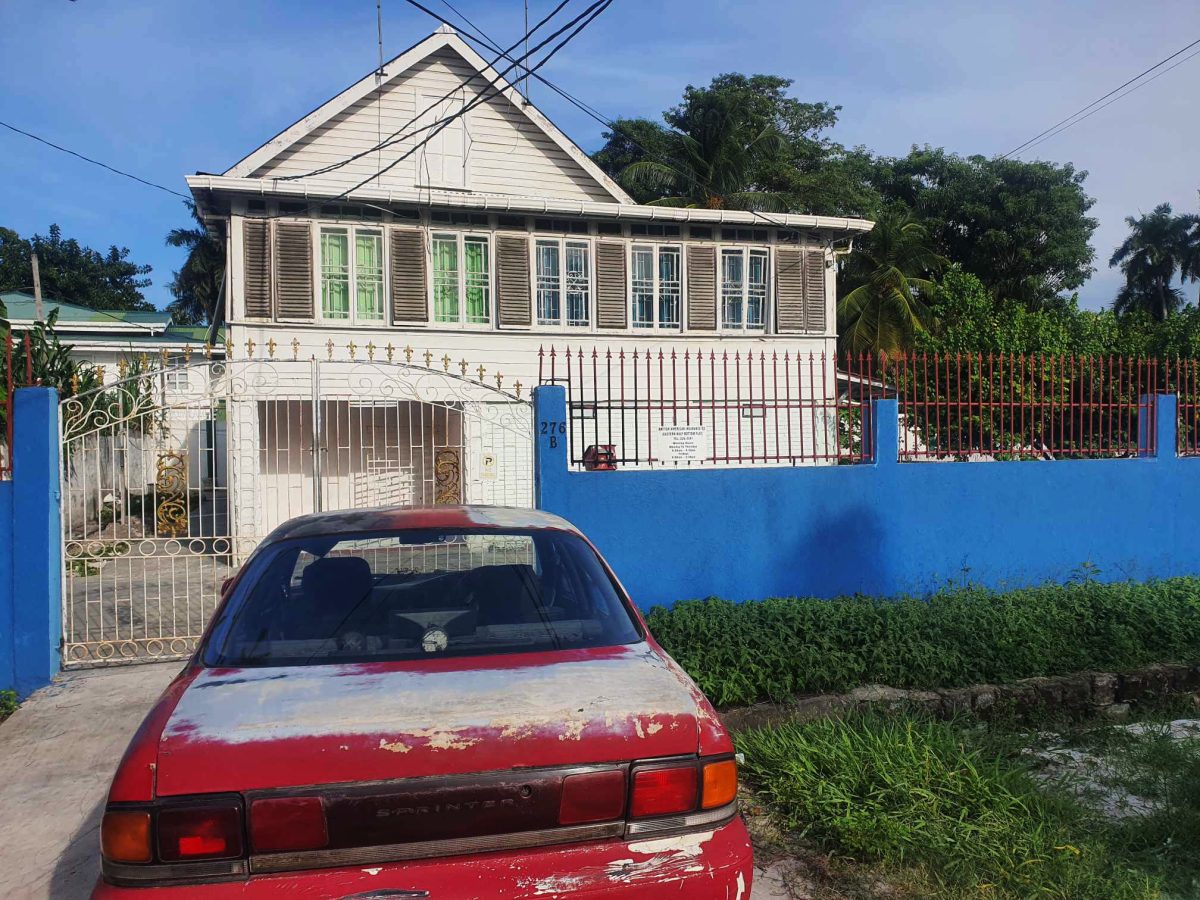Local policyholders who were part of the British American Insurance Company (BAICO) in Guyana, are being asked to contact the company as it is preparing to formally close operations and make payouts to those persons owed.
BAICO is a subsidiary of CLICO’s parent company, CLF which needed to be bailed out by the Trinidad Government in 2009.
“Notice is hereby given to the individuals shown below that they are required to contact the Judicial Managers of BAICO with respect to the policies issued by the Guyana branch, using details below,” a notice in last week Stabroek News from The Bahamas-headquartered BAICO stated, listing some 26 persons.
“You should also contact the office if your name does not appear on this list, but if you believe that you are owed money under an insurance policy issued by the BAICO Guyana branch,” it added.
Stabroek News visited the office and met with BAICO’s local representative, Vernon Underwood, who explained that while he is representing the company’s interests here, he is not authorised to officially speak for BAICO. He gave an email address and Bahamas number to contact the company but this newspaper was unable to do so despite several attempts.
Governor of the Central Bank, Gobind Ganga, told this newspaper that the company which was once under insolvency and administrated by court-appointed judicial managers, KPMG, had informed him that they were finalising a process by which all liabilities owned to BAICO Guyana policyholders could be paid in full.
He said that the joint Judicial Managers, Jean Green-Thompson, and Simon Townsend, had given notice to Guyana’s regulators on August 8 of this year.
He explained that due to insolvency, BAICO Bahamas and all its subsidiaries/branches, including BAICO Guyana, were placed under Judicial Management on September 8, 2009. BAICO’s collapse significantly impacted the entire Eastern Caribbean region, underlining the gravity of the situation.
BAICO Guyana ceased writing new business in April 1993 and was not registered with the then Office of the Commissioner of Insurance (OCI) upon the commencement of the previous Insurance Act in 2002, since it was in “run-off” and was not meant to conduct any new business.
Run-off is a strategy adopted by an insurance company once it has decided to discontinue writing business.
Judicial management of BAICO Bahamas extended to Guyana operations since BAICO Guyana was a branch office of BAICO Bahamas, he explained.
Due to judicial management, the payment of all claims across the region was frozen. During this time, approximately 83 claims were filed by policyholders in Guyana and have remained unpaid to this date.
Underwood said that until a formal meeting is arranged with Green-Thompson, the total payout amounts to BAICO Guyana’s policyholders remain uncertain.
Non-registration notwithstanding, the Bank of Guyana, as the entity responsible for regulating insurance business in Guyana, is still statutorily empowered to protect the interests of policyholders and other injured parties, a crucial aspect of the regulatory landscape that ensures the security of policyholders’ interests, the governor explained.
External company
BAICO Bahamas was registered as an external company in Guyana and was operating in Guyana as such.
Both BAICO and Colonial Life Insurance Company (CLICO) were under the CL Financial Group which was one of the largest privately held corporations in the entire Caribbean, before the company encountered a major liquidity crisis and subsequent bailout in 2009.
CLICO (Guyana) collapsed in 2009 after its Trinidad parent company had to be bailed out by the Trinidad government and its sister companies experienced grave financial problems. This collapse followed its loss of $6.9 billion (US$34 million) in the liquidation of CLICO (Bahamas). Those monies represented 53 per cent of the local company’s assets. The Bahamas subsidiary had invested the money from the Guyana company in Florida real estate which went bust.
At the time of CLICO’s collapse, its liability to Guyana’s National Insurance Scheme (NIS) was $5,482,446,199 for thirteen Executive Flexible Premium Annuity (EFPA) Policies which matured over the period 2009 to 2012. Since then, the Camp Street CLICO Building has been transferred to the NIS at a value of $600 million, thereby reducing the reconciled amount to $4,882,446,199.
CLICO Guyana had caused approximately $4 billion to be paid into an escrow account pending resolution of court proceedings here against its parent company CL Financial. That account is also collecting payments from agencies that have not yet concluded their transactions.
Guyanese holders of policies with CLICO (Guyana) were reimbursed by the Guyana Government. After years of repaying the state of Trinidad and Tobago for the bailout it was afforded, CLICO is now generating profits from its resumed and new business.
The company declared an after-tax profit of TT$2.3 billion in 2023.
The Central Bank here says it is monitoring payouts by Trinidad’s CLICO to Bahamian shareholders left stranded after the company was put into administration in 2009, but noted that Guyanese policyholders are in the lowest tier for recompense.





